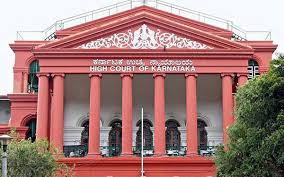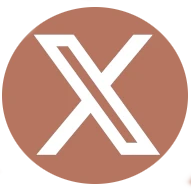Our Services

Kerala HC Establishes PWD Students Right to Higher Education
The Kerala High Court, in a recent judgment, Ashwathy v. Union
of India and Ors., held that Persons with Disabilities (PwD) have a right not
only to basic education but also to higher education. This judgment came as a
response to a case filed by a woman suffering from cerebral palsy who was
rejected admission to the MBBS course. Hon'ble Justice PB Suresh Kumar, passed
the much-lauded judgment.
Hon'ble Justice PB Suresh Kumar said:
If a disabled person desires to pursue his studies in a
particular field, and if he is capable and competent to do so, his disability
shall not stand in the way of the said learning process.”
Ms. Ashwathy, the petitioner filed a writ when she was denied admission
to the MBBS course in a college at Manjeri citing her cerebral palsy and the
consequent disability as the reason.
The decision of college came as the defying of the Rights of
Persons with Disabilities Act, 2016, particularly Section 32(1) of the said Act
that reads:
[32]. Reservation in higher educational institutions. — (1) All
Government institutions of higher education and other higher education
institutions receiving aid from the Government shall reserve not less than five
per cent seats for persons with benchmark disabilities.
In addition to this law, the Central Government on the admission
to the MBBS course of students with benchmark disabilities laid down guidelines
that state that a student may be admitted to the course without any objection
so long as they do not have a disability of more than 80%.
To assess the disability percentage, the Court took the
assistance of the methods of Manual Ability Classification System (MACS) and
Gross Motor Function Classification System (GMFCS). These assessment methods
led the court to the conclusion that the student was in fact:
a. A person who could handle and carry out most tasks like a
regular person, albeit with reduced speed and quality.
b. A person who could very well climb stairs with railings for
support but had a problem with uneven surfaces and could not readily run or
jump.
In the case of the petitioner-student, her disability was
examined by the court and gauged to be 63.3% which was quite below the upper
mark according to the guidelines.
The Court observed:
It is necessary to mention in the context of this case that like
any other citizen, persons with disability have also the right to get not only
the basic education but also higher education. Every person shall be presumed
to be capable of learning, and denial of opportunity to pursue a course which
one seeks to undertake on the ground of disability would amount to denial of
opportunity to learn, and would be discriminatory."
The National Medical Commission, however, raised an objection
expressing their apprehension as to how Ms. Ashwathy would fulfil her duties as
a doctor.
The Hon'ble Court in response said:
True, the doctors need to physically examine the patients, but
all candidates pursuing medical courses are not becoming practicing doctors.
There are several other avenues also for candidates who are pursuing medical
courses such as teaching, research etc. other than practicing in surgical and
clinical faculties which persons who do not have even the upper limbs are
successfully doing. That apart, it cannot be said that a person who is not able
to physically examine a patient cannot be a doctor, for having regard to the
technological advancements achieved in the field of medicine especially during
the last couple of decades, there would be umpteen replacements for physical
examination in the years to come.”
In conclusion and further to due assessments and scrutiny, the
court found the student to be eligible to pursue her course without any
hindrances. The Honorable court also directed the respective educational
institution to ensure a disabled-friendly facility within the institution in
accordance with the provisions of the Rights of Persons with Disabilities Act,
2016.
Angel Nair | Research Intern | EduLegaL
EduLegal View:
Nothing more apt than what the Court said and I reiterate:
“As far as persons with
disability are concerned, if only they are given education, they will be able
to lead an independent, economically self-sufficient, productive and fully
participatory life.”
Having said that our Government needs to take up significant
measures for holistic inclusion of our fellow DIVYANGJANS, because we accept it
or no, they really feel marginalised even today. Educational Institutions have
been mandated to frame Equal Opportunity Policy to encourage social inclusion.
However, not all have come up with the same.
We have moved some steps, but we have to go far towards their
welfare.
Ravi Bhardwaj | EduLegaL | mail@edulegal.in
EduLegaL View:
The
Kerala High Court, in a recent judgment, Ashwathy v. Union of India and Ors.,
held that Persons with Disabilities (PwD) have a right not only to basic
education but also to higher education. This judgment came as a response to a
case filed by a woman suffering from cerebral palsy who was rejected admission
to the MBBS course.






